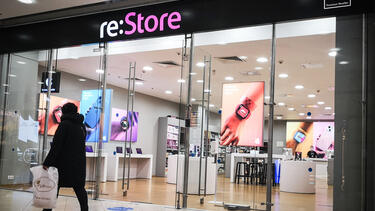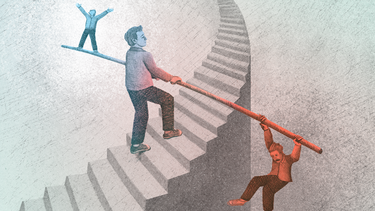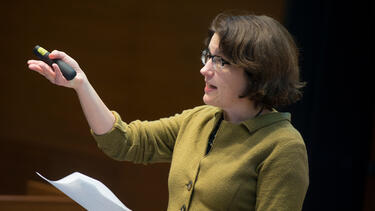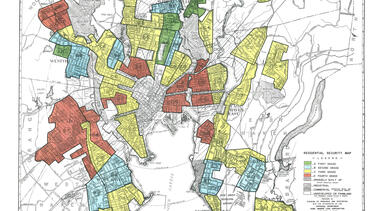All Insights Articles
Study: An Abundance of Media Fuels Polarization
Yale SOM’s Vahideh Manshadi and her co-authors built a model showing that faced with a flood of information, an individual tends to take in material that reinforces their existing beliefs.

A Better Way to Divide the Pie
In his new book, Prof. Barry Nalebuff proposes a fairer, more principled way to negotiate: splitting the additional value created by reaching an agreement. In this excerpt, he explains the concept through a visit to one of New Haven’s iconic pizza spots.

Why the Business Retreat from Russia Matters
Yale SOM leadership expert Jeffrey Sonnenfeld writes that companies’ moves to disengage from Russia can make a difference, pointing to the withdrawal of businesses from apartheid South Africa in the 1980s.

Delivering Decarbonized Transport
Dan Kim ’97, chief strategic officer and director of Next Renewable Fuels, argues that existing elements of the energy and transport sectors can evolve to contribute to a future decarbonized economy, alongside more disruptive innovations.

Can Ambivalence Motivate Us to Act?
New research by Professor Taly Reich and two Yale SOM colleagues demonstrates the way in which ambivalence can help encourage action despite the prospect of failure.

The Unexpected Impacts of Innovation
Prof. Judith Chevalier’s research has unraveled implicit incentives driving risk taking by mutual fund managers, the ways online reviews shift business strategy and consumer decisions, and the consequences of nursing home workers’ movement between facilities in spreading COVID-19.

What Does the War in Ukraine Mean for Businesses?
We asked Prof. Paul Bracken, an expert on business and defense strategy, about the risks that corporate leaders should consider as the Russian invasion and the resulting sanctions unfold.

The Past and Present of Race, Money, and Equity in America
Journalists Louise Story ’06 and Ebony Reed argue that understanding the grim history of race and money in the United States is key to building a more equitable future.

The Keys to Trust in Public-Private Partnerships
Wariness between partners can undermine potentially impactful projects. New research co-authored by Yale SOM’s Teresa Chahine examines an ambitious project to deliver medicines across Africa and details the keys to building trust.

Does Scoring a Goal Right Before Halftime Increase a Soccer Team’s Chance of Winning?
Yale SOM’s Nils Rudi and crime novelist Jo Nesbø—a one-time professional soccer player—investigated the myth and found evidence that there is some truth to it. The results may offer lessons for team performance on and off the field.
